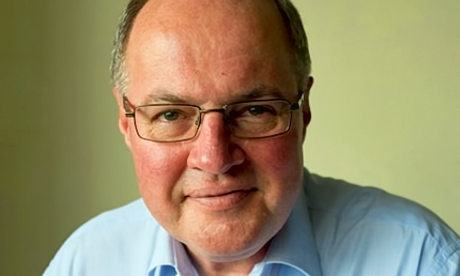There’s something profoundly rotten about cultures that can give birth to the murderous behaviour on show in Paris last Friday.
This is just the latest and probably most visible instance because it happened in one of the hubs of the European and North American news media.
These hubs make things that happen in too many other parts of the world actually reach living rooms worldwide.
As such, this event is something that makes very clear what has been around for a long while in many parts of the world. Media focus actually makes these events part of the lives of people everywhere.
And the focus on Paris shows no sign of going away.
These events are stunning to many viewers and readers. But they will be poorly served by the media channels carrying the news because all seem to share the Western religious illiteracy of so called “developed” secular societies.
I live in Asia and never cease to marvel that little if any informed attention is given to the religious foundations of much that disturbs Asian societies and is now convulsing Europe.
The cultural poverty of the West about religious matters really comes home to roost when events like this occur.
Not that the cultural ignorance doesn’t have its own causes. It grows out of a history of conflicts based on religion in Europe that can understandably lead to a form of amnesia.
The medieval Crusades but most importantly the Wars of Religion in the 16th and 17th Centuries showed that Christianity itself was more a trigger to violence than a means of reconciling aggrieved parties.
The European wars of religion were a series of conflicts from ca. 1524 to 1648, following the onset of the Protestant Reformation in Central, Western and Northern Europe.
Although sometimes unconnected, all of these wars were strongly influenced by the religious change of the period, and the conflict and rivalry that it produced.
From those conflicts came a few things:
- The end of the marriage of altar and throne in the medieval period that had the morals set by the Catholic Church and regulated by Catholic monarchs;
- The beginnings of the nation state and the recognition that if humanity were to survive, a new and more effective set of values and better ways of regulating social interactions had to be found;
- The emergence of new cultural forms that applied to every social domain from the development of patterns of politeness in the way people treated one another to the creation of new ways of regulating society exemplified in the establishment of police forces.
All this has been clearly explained by the Canadian philosopher and cultural historian Charles Taylor in his acclaimed and multi-award winning A Secular Age. Taylor argues persuasively that Europeans learnt the hard way how to live with one another over a century or more.
This is a learning Islam has yet to accommodate.
While Islam is divided in a similar way to the one between Catholics and Protestants (the Sunni and Shia divide), Muslims also focus their hostilities and misgivings beyond their own faith community with the barbaric consequences we saw in Paris and could see anywhere.
Islamic extremists can’t and won’t tolerate difference. But the source of that view comes from the religion itself.
Say what you like about Christianity, but there’s a mighty different set of resources for Christians to draw on than are readily to hand for Muslims.
The death and resurrection of Jesus Christ has etched into cultures influenced by the Gospel something that neither Islam nor Buddhism, for that matter, have bequeathed to the cultures they have given birth to.
The distinctive contribution of Christianity to civilization is a rich and deep sense of paradox and its close relative, irony.
It’s where our notions of tragedy come from. It feeds what we got from Greek notions of tragedy. A rich sense of paradox feeds an imagination that can accommodate difference, that sees vitality coming in helplessness, that sees something coming out of nothing.
Christians should always be open to surprises because the God of Jesus Christ writes straight with crooked lines. And people open to following Jesus are believers that everyone should be given another chance.
That’s the basis of acceptance of others as they are. The acceptance of difference is hard to find among many Muslims who think that the only good Christian is one who converts to Islam.
The incarnation of Jesus means Christians have to look at and accept reality in all its complexity and variety as a carrier of, not a distraction from, God’s presence.
Accepting people as they are is not just absent in the bomb-throwing and machine-gun firing sort of Muslim.
The failure to accept people as they are is a broader feature of Islam. Just as Christianity used to be, too many Muslims today unfortunately believe we all should be followers of the Prophet.
These murderous beings at work in Paris and in the Middle East have only one response to enemies: kill them and forget about it. The objects of their behavior have no right to be respected especially because they’re wrong.
I think the world has outgrown the ability to accommodate this sort of Islam. It’s up to Muslims to explain to us why they can’t offer the rest of us the tolerance and welcome that we offer them.
It might be some time in coming.
- Michael Kelly SJ is a Jesuit priest, journalist and the executive director of UCA News. First published in John Menadue – Pearls and Irritations. Republished with the author’s permission.
News category: Analysis and Comment.




